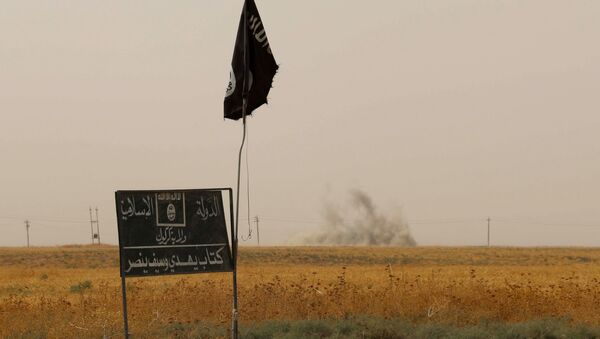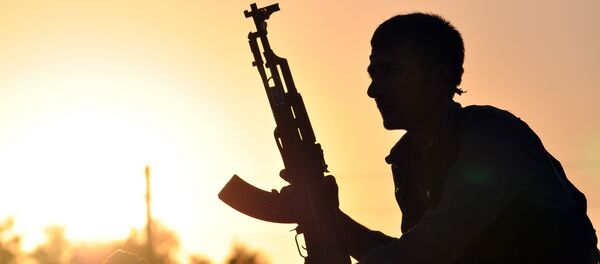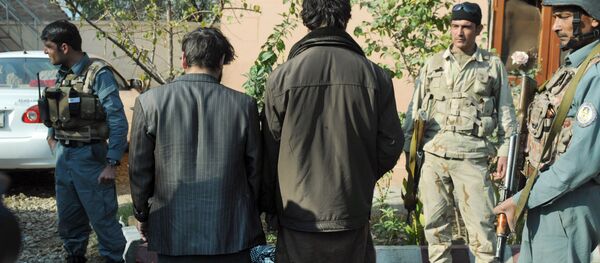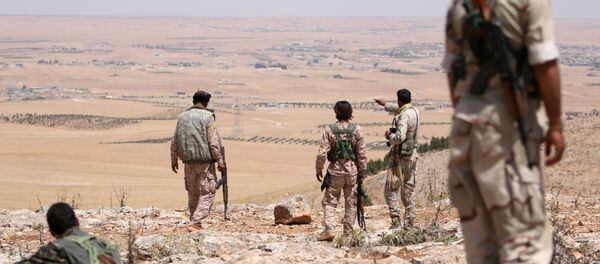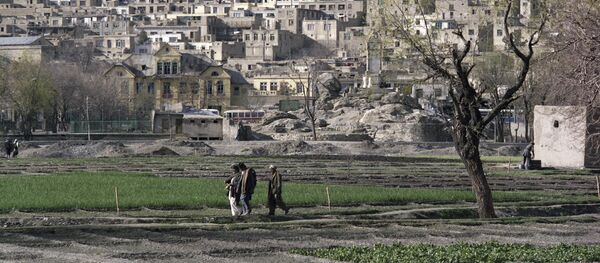Among other possible hotbeds of the terrorists, experts name Iraq, Afghanistan, and Central Asia.
Afghan Front
The first Daesh supporters emerged in Afghanistan two years ago. Since then, their number has significantly grown in Afghan provinces bordering Tajikistan, Uzbekistan, and Turkmenistan.
"Currently, the number of Daesh supporters in Afghanistan is estimated at between 3,000 and 12,000. Some of them are Arabs from the Middle East, but the majority is Afghans and Pashtuns from Pakistan and Afghanistan," Andrei Zakhvatov, an expert on Central Asia, told Gazeta.ru.
It is difficult to clearly describe relations between Daesh and the Taliban because the goals of the two groups are different.
"The Taliban’s main goal is taking power in Afghanistan while Daesh wants to establish the so-called Khorasan Province in Tajikistan, Uzbekistan, and Turkmenistan. The group is accumulating forces and propagating its ideology in these countries. Relations between the two groups are based on their goals. But they are unlikely to become allies for ages," the analyst pointed out.
For Daesh, Afghanistan may turn into a stepping stone allowing for its expansion in Tajikistan, Uzbekistan, Turkmenistan, and Pakistan. This strategy complies with the plan to enlarge the influence of the Daesh branch in Afghanistan. However, if Daesh is defeated in Syria some militants might move to Pakistan and Afghanistan, but its immediate activities in Central Asia are unlikely.
According to Abbas Juma, an analyst on Central Asian problems, after Raqqa falls Daesh will probably return to Iraq where it could regroup forces for a counterattack.
However, security analyst Grigoriy Trofimchuk said he cannot rule out that Central Asia may turn into a hotbed of terrorism.
According to him, Daesh has strongholds in Afghanistan and may soon intensify its activities in Central Asia.
However, if this happens, the analyst noted, this would raise the question of the possible Chinese engagement.
"China has significantly strengthened its positions in Central Asia. It has invested a lot in the region. The question is whether Daesh is ready to confront China?" Trofimchuk said.
What are Turkey’s Interests in Afghanistan?
As counterterrorist forces have been graining grounds in Syria, Turkey intensified its efforts in Afghanistan. In May, Iranian media reported that Ankara planned to open a religious center in Nangarhar. On June 6, Turkish Defense Minister Fikri Isik visited Afghanistan. Kabul and Ankara discussed military cooperation, including in regional security.
Turkey’s interest in Afghanistan can be understood via its tensions with Moscow, Trofimchuk said.
"Ankara has repeatedly sent signals that it wants normal ties with Russia. But Moscow hasn’t responded. In this situation, Turkey would expand its influence in Central Asia, and it wants to begin from Afghanistan," he pointed out.
In addition to the "Turkic project," Turkey’s interests in Afghanistan may stem from its failed ambitions in Syria. Both the US and Russia are now engaged in counterterrorist efforts in Syria which contradicts with Ankara’s strategy of supporting Daesh. Turkey’s involvement in Afghanistan may help Daesh gain positions in Central Asia.
The Threat in Central Asia
Russia is concerned about the terrorist threat coming from Afghanistan to Central Asia.
"Recently, there has been alarming news from the Afghan-Turkmen border," Zakhvatov said adding that Shoigu’s visit was linked to the emerging terrorist threat in Central Asia.
In turn, Trofimchuk said that it is too early to say that Russia and Turkmenistan will boost military cooperation.
"Currently, the Russian economy is in crisis, and Moscow just can’t give money to all Central Asian republics. Shoigu’s visit was necessary because the situation is really difficult. But it came rather as a signal to the West that Russia is not leaving Central Asia," he said.
According to him, in Central Asia and Afghanistan there are no grounds for Daesh expansion. Local Muslim leaders protest any religious universalism, especially the Daesh ideology. Moreover, in Central Asia religious beliefs are closely related with ethnic identities.
"Daesh is a local Middle East phenomenon. Its threat has been inflated by media in the interests of different countries, including the US, Russia, China. At the same time, in such countries as Uzbekistan and Kazakhstan there is no serious threat of Daesh expansion," Knyazev said.
The possible defeat of Daesh in Syria may cause Afghanistan and Central Asia to become destabilized. At the same time, experts doubt that Daesh is capable of a new large-scale offensive in Central Asia. However, Daesh may intensify its activities in Afghanistan to fight against Taliban for drug trafficking money. Nevertheless, if the Daesh threat in Central Asia is real it would create risks for Russia's national security.

